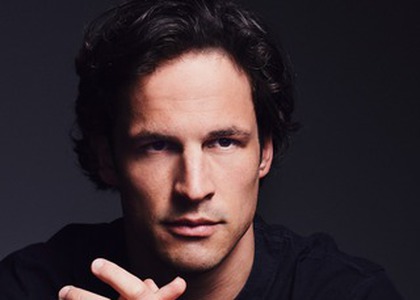> Interviews

Interview with conductor and clarinetist Andreas Ottensamer
Andreas Ottensamer will be at the conductor's desk of the Radio Chamber Orchestra on Wednesday, April 17th, 2024. The program includes ArthurHonneger's "Pastorale d'été", Serenade for Strings in C major, Op. 48 by Pyotr Ilyich Tchaikovsky and Symphony No. 2 by Franz Schubert.
The score for Arthur Honneger's work "Pastorale d'été" opens up with a quote from Arthur Rimbaud's poetry: "J'aiembrassél'aubed'été" (I embraced the dawns of summer). In what way do these words influence your performance?
There could not be a better moment than this one for performing this particular work, when the weather is so warm almost all over Europe and you can feel the early signs of summer. I thought that this work might hurry summer along, but it seems to be already here. On the one side, it's a very calming work, but, at the same time, it's one that excites people and sparks imagination. The audience is able to close their eyes and imagine their own story, their own universe, perhaps a wonderful garden. It's a splendid work that I can't wait to perform.
Tchaikovsky writes to his friend and patroness Nadezhda von Meck regarding his work, Op. 48: "I've composed this serenade based on an inner impulse. It's a work which comes from the heart." He also meant to pay homage to Mozart in the first part. What is your perspective on this work?
What seems amazing to us was felt intimidating rather than thrilling by the majority of these composers-we can go back in time and see the way they were influenced, inspired, or even overwhelmed by the great shadows of Mozart, Beethoven or even Haydn, who composed his first works in a particular genre. The serenade belongs, in this respect, to Mozart, as a profile. Let us remember the composers' fear of creating a Ninth Symphony, because of Beethoven's one. Tchaikovsky thought, of course, of Mozart when composing this work, influenced by his admiration and respect for him. The serenade is a remarkable example of what it means to combine classical forms and the transcendental romantic language of a Russian compositor who had reached artistic maturity. It's like a marriage between two worlds. It's a true challenge to get to that utmost expressivity, breadth and scope of the music and at the same time to honor the classicism of the work in terms of tempo, formal relations, transparency and tenderness of sound.
How did you come up with the program for the concert, which combines the classical-romantic universe with impressionistic touches?
I had in mind works that I really wanted to perform alongside the orchestra, especially Schubert's Symphony No. 2. I also shared with the ensemble the same desire of integrating a serenade within the program. I thought it would be way more interesting to avoid limiting ourselves to only classical scores and to create a balance by integrating a work that brings us to a completely different musical universe, one which is related to classicism through form only. I think it will be really nice for the audience to get to experience both worlds.
How does it feel to be working together with the Radio Chamber Orchestra once again, but only as a conductor this time around?
It's always nice to get to work again with a group of people, because you can attempt to reach the next level. You don't have to start from scratch. I couldn't wait to see where this collaboration would take us. I'm also happy to be here, in Bucharest, once again, especially on such lovely weather. I hope I'll get to explore the city.
Can you tell us about your early experience-that of being part of a family of musicians, of growing up in Vienna?
Where do I even begin? I grew up surrounded by music. Music was never something that I was initiated in, that was presented to me. It was always there, naturally. I've always felt it was part of my life, even when I was a child. You're also always surrounded by music in Vienna. Music life has always been evolved in that city. It's all about its importance in society, the level of appreciation for classical music, how present it is in your daily life-all these things are felt, I would say, more strongly in Vienna than anywhere else. I've just returned from the capital of Austria and even I was surprised at how often you encounter musicians there. You see someone with a cello or a violin or a flute strapped on the back, on the bike, at every corner. It's incredible!
Translated by Raluca Daniela Miloș,
University of Bucharest, Faculty of Foreign Languages and Literatures, MTTLC, year II
Corrected by Silvia Petrescu














